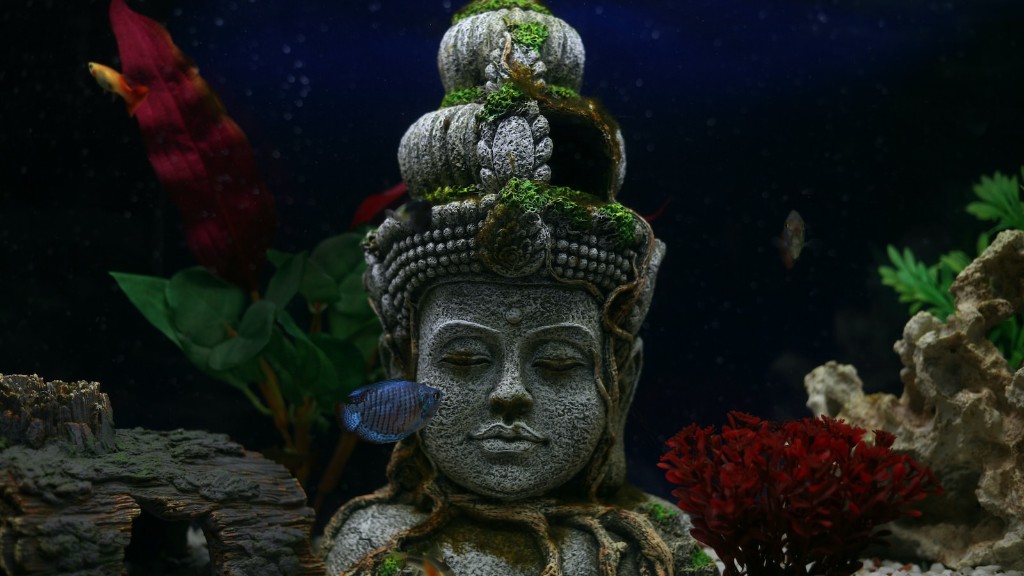Buddhism is a religion that began in India about 2,500 years ago. The man who started it, Siddhartha Gautama, was born a prince. Siddhartha lived a life of luxury and ease, but he left it all to find out what life was really about. Siddhartha studied with religious teachers, but he was not satisfied with what they had to offer. He decided to go off on his own and find his own path to enlightenment.
After many years of searching, Siddhartha finally found what he was looking for. He became enlightened and began teaching others what he had learned. The religion that Siddhartha started is called Buddhism. The major ideas in Buddhism are that people are reborn after they die and that they can escape from the cycle of rebirth by following the teachings of Buddha.
Buddhism is a religion that is based on the teachings of Siddhartha Gautama. Siddhartha Gautama was born in Nepal in the 6th century BCE, and he is the founder of Buddhism. The major beliefs of Buddhism include the Four Noble Truths, the Eightfold Path, and the doctrine of karma. The Four Noble Truths state that suffering is an inherent part of life, that the cause of suffering is desire, that suffering can be ended, and that the way to end suffering is through the Eightfold Path. The Eightfold Path is a system of ethics that includes right speech, right action, and right mindfulness. The doctrine of karma states that a person’s actions have consequences, and that good deeds will lead to a good rebirth, while bad deeds will lead to a bad rebirth.
What are the 3 main beliefs of Buddhism?
Buddhism is a religion that is based on the teachings of Siddhartha Gautama. The main principles of this belief system are karma, rebirth, and impermanence. Buddhists believe that karma is the result of a person’s actions and that it determines their fate in future lives. Rebirth is the belief that after a person dies, they are reborn into another body. Buddhists also believe that everything in life is temporary and that nothing lasts forever.
The Five Precepts are basic guidelines for living a moral and ethical life. They are:
1. Refrain from taking life
2. Refrain from taking what is not given
3. Refrain from the misuse of the senses
4. Refrain from wrong speech
5. Refrain from intoxicants that cloud the mind.
These precepts provide a foundation for living a good and meaningful life. They help us to be kind and considerate towards others, and to act in ways that are beneficial to both ourselves and others.
What are the main beliefs in Buddhism called *
Buddha’s most important teachings, The Four Noble Truths, are essential to understanding the religion. Buddhists embrace the concepts of karma (the law of cause and effect) and reincarnation (the continuous cycle of rebirth). Followers of Buddhism can worship in temples or in their own homes.
The Four Noble Truths are the cornerstone of Buddha’s teachings, and though they may leave some things unexplained, they provide a great deal of wisdom and guidance. The first truth is that suffering exists, and this is something that we must all come to accept. The second truth is that suffering is caused by our desires and attachments. If we can learn to let go of these things, we can find relief from our suffering. The third truth is that there is an end to suffering, and that is Nirvana. Finally, the fourth truth is that there is a path that leads us to Nirvana, and that path is the Eightfold Path.
What are the 3 main beliefs of Buddhism quizlet?
Buddhism beliefs include karma, reincarnation, enlightenment, rejected caste system, Nirvana, four noble truths, eight fold path.
Enlightenment is the wisdom and understanding of the reasons for suffering.
Nirvana is the release from selfishness and pain.
Samsara is the rebirth into another life.
Siddhartha Gautama is the founder of Buddhism. The four noble truths are the truth of suffering, the truth of the cause of suffering, the truth of the end of suffering, and the truth of the path to the end of suffering. The eightfold path is the path to enlightenment.
The Eightfold Path is a series of eight steps that Buddhists can follow to help them lead a contented (satisfactory) life. They are: Right Understanding; Right Thought; Right Speech; Right Action; Right Livelihood; Right Effort; Right Mindfulness; Right Concentration.
What are the basic beliefs of Buddhism quizlet?
Suffering is a part of human life. No one can escape from suffering while alive. Suffering comes from people’s desires for pleasure and material goods. Overcoming these desires during life eventually brings suffering to an end. Desires can be overcome by following the Eightfold Path.
Hinduism is a religion with many gods. Hindus believe in a single unity, and that all the gods are manifestations of this unity. Hindus have a preference for one deity, but this does not mean that they exclude or disbelieve in others. Hindus believe in the law of cause and effect, and that reincarnation is a part of this process.
What type of religious belief is Buddhism
Buddhism is a religion that does not believe in a creator god. It is also considered a philosophy and a moral discipline. It originated in India in the 6th and 5th centuries BCE. The founder was Siddhartha Gautama, who is also known as the Buddha.
Buddhism is a tradition focused on spiritual liberation and enlightenment, not on the worship of a creator god. The Buddha himself rejected the idea of a creator god, and Buddhist philosophers have argued that belief in an eternal god is nothing but a distraction for those seeking enlightenment.
What religion was Jesus?
Despite the fact that Jesus was a Jew, he was born of a Jewish mother in Galilee, a Jewish part of the world. All of his friends, associates, colleagues, disciples, all of them were Jews. He regularly worshipped in Jewish communal worship, what we call synagogues.
There are a number of prominent themes that run through Hindu beliefs. One of the most important is Dharma, which refers to the ethical and moral duties that Hindus are expected to uphold. This includes things like living a life of honesty and integrity, behaving in a way that is beneficial to society, and so on.
Another important theme is saṃsāra, which refers to the cycle of birth, life, death, and rebirth that Hindus believe in. This cycle is seen as a way of gaining spiritual knowledge and experience, and ultimately freeing oneself from the cycle through moksha, or liberation from attachment and desires.
Karma is another important concept in Hinduism, which refers to the actions and consequences that arise from our choices and actions. This can be seen as a way of determining our destiny, as our actions in this life will determine our rebirth in the next.
Finally, there are the various yogas, or paths, that Hindus can follow in order to achieve moksha. These include things like the path of knowledge, the path of action, and the path of devotion. Each person must find their own path to liberation, and there is no one right way to achieve it.
What are the core values of Buddhism
Buddhists believe that the main values are love, wisdom, goodness, calmness and self-control. They think that people should try to end suffering as all things are seen as having no self or essential nature.
Death is not seen as an end, but as a new beginning. Buddhist teaching views life and death as a continuum, believing that consciousness (the spirit) continues after death and may be reborn. Death can be an opportunity for liberation from the cycle of life, death and rebirth.
What do Buddhists think of Jesus?
Some high level Buddhists have drawn analogies between Jesus and Buddhism. The Dalai Lama stated in 2001 that “Jesus Christ also lived previous lives”, and added that “So, you see, he reached a high state, either as a Bodhisattva, or an enlightened person, through Buddhist practice or something like that” Thich .
In Buddhism, there is no belief in a divine being who rewards or punishes us for our thoughts, words and deeds. Instead, we believe in the law of karma, which is the law of cause and effect. Every cause has an effect, and every effect has a cause. Our actions, thoughts and words are causes that create effects in our lives. If we sow positive seeds, we will reap positive results. If we sow negative seeds, we will reap negative results. It is our own actions that determine our destiny, and not the whim of a capricious or vengeful god.
Final Words
Buddhism is a religion and philosophy that originated in India in the 6th century BCE. The major beliefs and ideas of Buddhism include the Four Noble Truths, the Eightfold Path, and the doctrines of Karma and Nirvana.
Buddhism is a religion and philosophy founded in India by Siddhartha Gautama. Belief in karma, or the law of cause and effect, is a fundamental tenet of Buddhism. Buddhists believe that good deeds lead to good karma and bad deeds lead to bad karma. This belief extends to thoughts and words, as well as deeds. Buddhists also teach that the only way to end the cycle of rebirth and suffering is to achieve nirvana, or enlightenment. To do this, one must follow the Eightfold Path, which includes ethical conduct, meditation, and wisdom.




